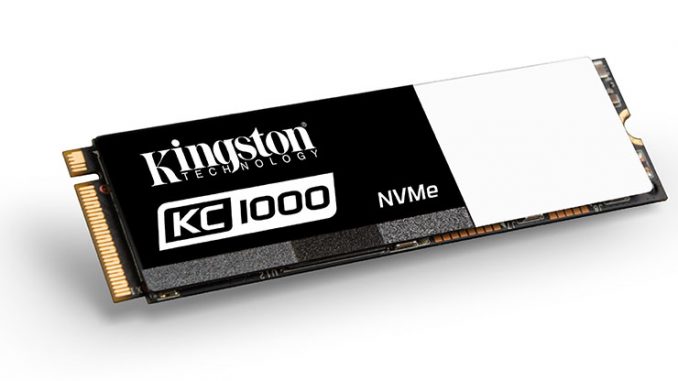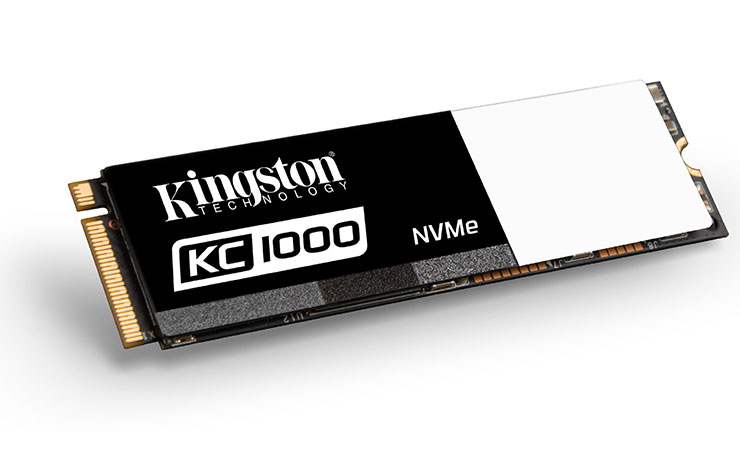
Kingston, the computer peripheral maker, has rolled out its first Solid State Drive NVMe PCIe in India dubbed as KC1000. The new SSDs arrive in 3 storage alternatives. The SSDs comes in 480GB, 240GB, and 960GB choices and have a price tag of Rs 26,000 Rs 16,000, and Rs 51,000, respectively. These SSDs will be accessible starting this August in selected retail and online stores. The SSDs come with a warranty period of 5 Years.
As per Kingston, the SSD NVMe PCIe is more than 2x faster than SSDs that are SATA-based and more than 40x faster than a hard-disk drive 7200RPM. Kingston also claimed that the KC1000 is made for the power consumers. It offers the low-latency, ultimate performance boost for applications demanding for resource. These applications include data visualization, high-resolution video editing, gaming and various data-intensive workload situations where conventional storage solutions are not able to keep speed with demand of the data.

KC1000 offers up to 290,000 IOPS and gives load speeds and accelerated boot as well as elevates chronological read/write performance. In addition to this, it offers energy efficiency and enhanced endurance. As per the company, it gives up to 2,700 MB/s of the read speed and up to 1,600 MB/s of write speed.
Previously, this year, Kingston rolled out in India the secure USB flash drive—DataTraveler 2000. The secure flash drive is accessible in 3 storage options. It is available in 32GB, 16GB, and 64GB, priced at Rs 14,000, Rs 10,000, and Rs 18,000, respectively. The underline feature of the DataTraveler 2000 is its in-built alphanumeric keypad, which permits consumers to set a protected passphrase for encrypting the information kept on the flash drive. The USB drive is well-matched with Mac OS, Windows, Chrome OS, Linux, and Android.
Kingston DataTraveler 2000 sports a full-disk and hardware-based AES 256-bit data encryption. This essentially indicates that the encryption is not conducted on the host PC, but on the DataTraveler 2000 itself.
The USB drive also has an auto-lock characteristic that gets triggered when it is detached from a gadget. This also removes the encryption key after 10 consecutive failed attempts of intrusion.
